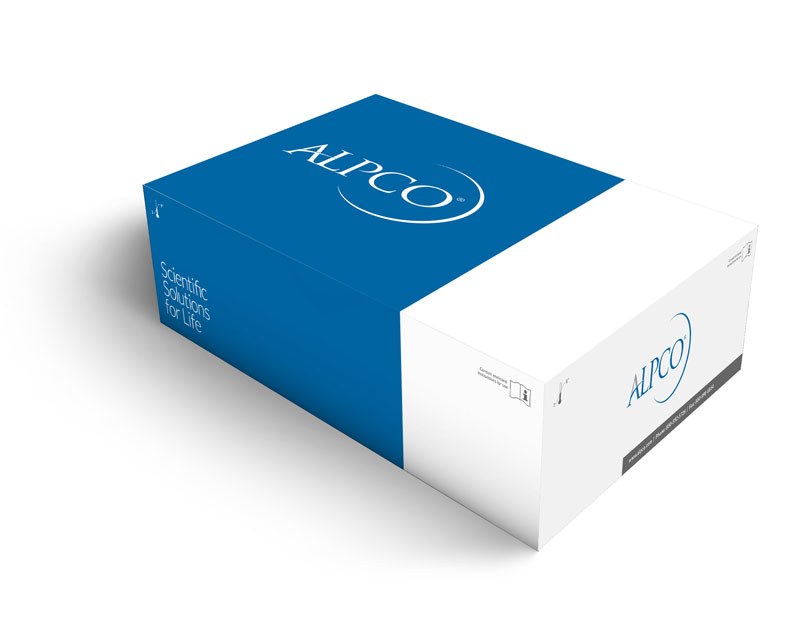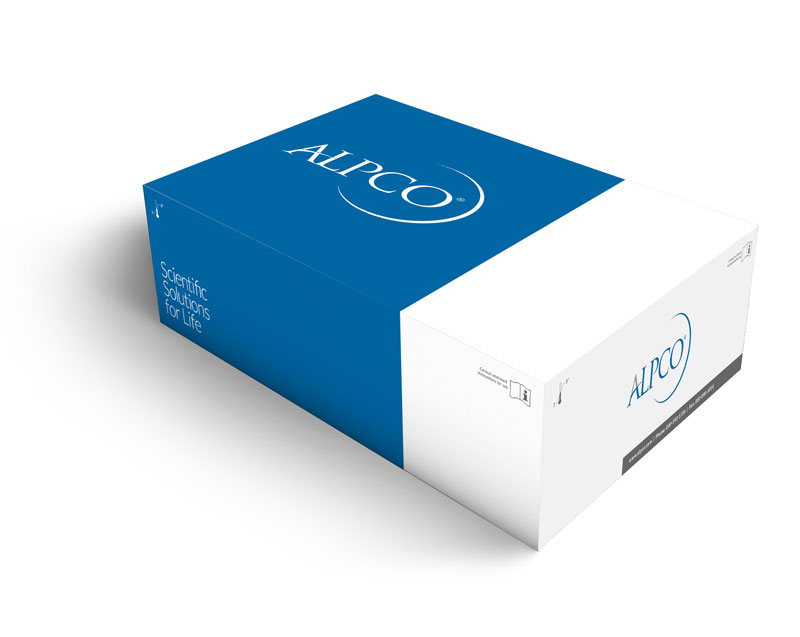Clinical Research
New: Calprotectin Immunoturbidimetric Assay will take your testing to the next level. Learn more.ALPCO has been serving the needs of clinical researchers and clinical diagnostics labs for over 30 years, and we now offer a broad product menu of proprietary automated sample-to-answer platforms. We’re ...
Fecal Calprotectin Testing from Extraction to Results – Simplify Complexity
Immunoturbidimetric Assay for Fecal CalprotectinExtraction to Results – Simplify ComplexityLeverage the power of our FDA-Cleared Immunoturbidimetric (IT) Assay for fecal calprotectin designed to integrate seamlessly with your existing clinical chemistry analyzer. Experience a method that is not only...
Explore ALPCO's Diverse Products for Gastroenterology Research
Explore ALPCO's Diverse Products for Gastroenterology Research
AGA Guidelines: Calprotectin and C-Reactive Protein Monitoring for the Management of Crohn’s Disease
Download ou infograhpic prepared by ALPCO and gain a comprehensive overview of the American Gastroenterological Association (...
Alpco Home Page
New: Calprotectin Immunoturbidimetric Assay will take your testing to the next level. Learn more.Supporting your work with life science and clinical testing productsVIEW ALL LIFE SCIENCE PRODUCTSVIEW ALL CLINICAL DIAGNOSTIC PRODUCTS
ALPCO’s Calprotectin Validation Assistance Program
Whether your clinical laboratory is transitioning over to the ALPCO Calprotectin Chemiluminescence ELISA from another calprotectin assay or starting to run the test in-house for the first time, validation is the most crucial step in the assay implementation process. We understand that validating a n...
Managing Calprotectin as a Send Out?
While sending out for calprotectin testing offers some cost and convenience advantages when volumes are very low, bringing the process in-house allows for the opportunity to control costs, turnaround time, and quality. Considering costs and potential revenue, the volume at which in-house calprotecti...
Enhance Your Lab’s Molecular GI Portfolio
Molecular GI testing for bacteria such as salmonella, vibrio, and E. coli, and viral pathogens including norovirus and rotavirus, is instrumental in the diagnosis and treatment of infection and dysbiosis. In addition, many gastrointestinal disorders often require protein biomarker tests to aid in ac...
Differentiating IBD from IBS with Fecal Calprotectin Testing
In an effort to improve patient care, an increasing number of gastroenterologists are using fecal calprotectin levels as a first step in the diagnosis of IBD versus IBS. ALPCO tests enable clinicians to accurately assess patients via calprotectin and quickly start patients on the right treatment pat...
ALPCO's Superior Calprotectin Assay: Maximize Efficiency & Accuracy
Reduce False Positives from 26% to 7%! An increase in clinical specificity, and a decrease in false positives, enables clinicians to better evaluate IBD/IBS patients. Clinicians can schedule follow-up colonoscopies for the patients that need it most and start IBS patients on the right treatment path...
AutoPlex Automated Multiplex Biomarker Analysis
ALPCO’s automated multiplex assay, AutoPlex GI Panel, provides sensitive and accurate measurement of up to 5 GI biomarkers in human stool samples. The panel combines the workflow advantages of multiplexing with the proven reliability of traditional chemiluminescence sandwich immunoassays to enable b...
Targeted Solutions for Gastroenterology
ALPCO offers targeted GI solutions suitable for all types of labs. Our offerings range from plate-based to clinical chemistry analyzer-based and automated flash chemiluminescence solutions, all designed to accommodate your lab’s expanding testing needs and capabilities.
Differentiating Gastrointestinal Pathogens from IBD and IBS
Gastrointestinal (GI) disorders such as inflammatory bowel disease (IBD) and irritable bowel syndrome (IBS), as well as infections from GI pathogens can present very similar symptoms. A host of tests have been developed to aid in the differentiation between IBD and IBS, such as calprotectin and lact...
Vitamin D Metabolism and Function
Understanding Vitamin D Metabolism & Function
Vitamin D is a steroid hormone involved in the intestinal absorption of calcium and the regulation of calcium homeostasis, bone differentiation and immune response. The term "vitamin D" refers to several different forms of this vitamin.
...
Simplify Stool Sample Processing
Introduction
We understand the challenges facing lab managers and directors who need to continuously improve workflow efficiency and implement new tests and technologies to be competitive. Our unique extraction method can be used with a portfolio of targeted stool markers. This allows your lab to s...
Measuring Pancreatic Elastase to Diagnose Pancreatic Disease
Many digestive system disorders and diseases can present similar types of symptoms including bloating, diarrhea, constipation, and weight gain/loss. In an effort to rule in or rule out the presence of one disease or the absence of another, clinicians will often turn to clinically approved stool-bas...
Stool-Based Biomarkers to Differentiate Between IBD and IBS
What are IBD and IBS?
Inflammatory bowel disease (IBD) and irritable bowel syndrome (IBS) are two different gastrointestinal tract issues affecting millions of people every day. Although there is some overlap between symptoms of IBD and IBS, differences still remain in regards to pathologies, risks...
De-escalating Inflammatory Bowel Disease Therapies
Date: June 21, 2016
Author: Andrea Tarbet, Product Marketing Associate at ALPCO
Several therapies exist to help treat inflammatory bowel disease (IBD) and improve patient quality of life. However, a growing number of gastroenterologists and patients have been choosing to stop these therapies -...
An Accurate Solution to the Challenges with Measuring GLP-1
Glucagon-like peptide-1 (GLP-1) is a gut hormone which plays an essential role in insulin secretion and glucose homeostasis1. While GLP-1 has become central to many metabolic disease research programs, various GLP-1 ELISA kits currently available on the market have been failing to meet the needs of ...
 Easy Stool Extraction Device
Easy Stool Extraction Device Calprotectin Immunoturbidimetric Assay
Calprotectin Immunoturbidimetric Assay Mouse / Rat Calprotectin ELISA
Mouse / Rat Calprotectin ELISA